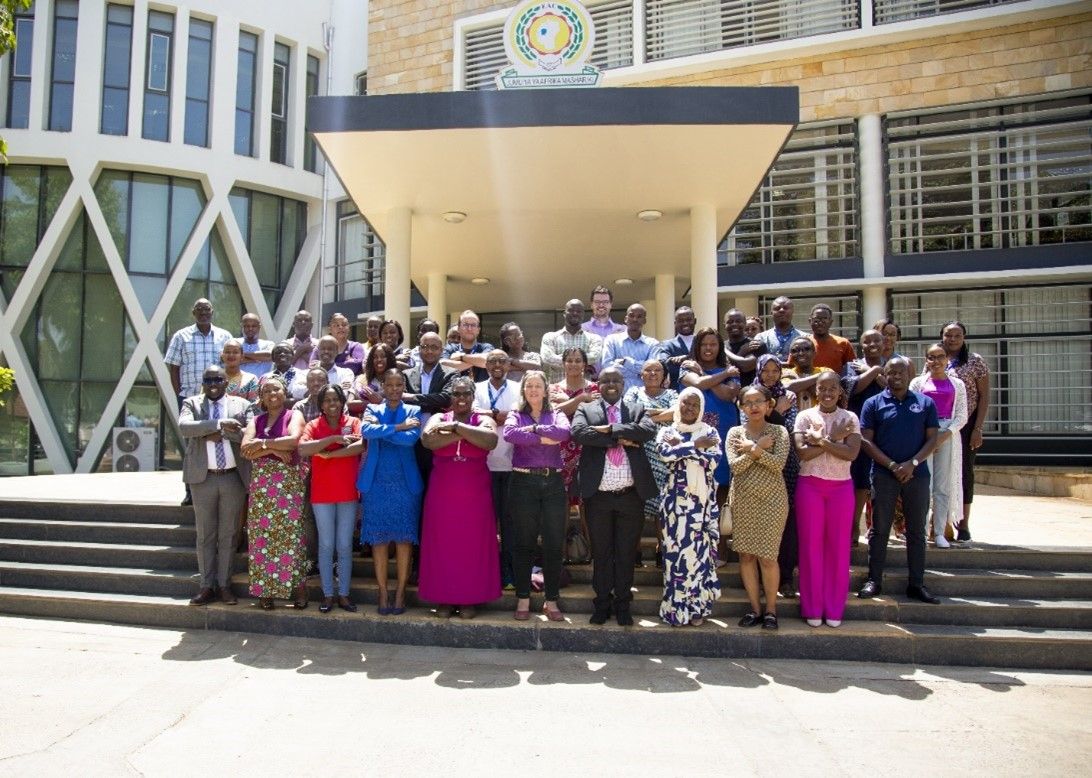On 10 March 2023, the EAC-GIZ cluster in collaboration with the EAC Secretariat and representatives from the East African Legislative Assembly (EALA), East African Science and Technology Commission (EASTECO), East African Business Council (EABC), Inter-University Council of East Africa (IUCEA), students from the Nelson Mandela Africa Centre of Excellence on Science and technology (NM-AIST), East African Women in Business Platform (EAWiBP), among other regional private sector and civil society organizations, jointly celebrated the International Women’s Day 2023 through a workshop themed “DigitALL: Innovation and technology for gender equality in East Africa”, hosted at the EAC Secretariat.
The workshop provided a platform for dialogue on digital innovation and technology for gender equality in the EAC, it highlighted the status of digitalization, innovation, and technology in East Africa, explored the opportunities, challenges, and impacts of technology on women and youth in the EAC and showcased innovation and technology in practice that were promoting gender equality for women and youth in the region.
In her opening remarks, Mrs Godje Bialluch, Cluster Coordinator EAC-GIZ, noted that, “digital literacy is as important as traditional literacy, although women are slowly making headway into the innovation and technology space in East Africa, there is still more work to be done.” Further, she urged EAC Partner States to prioritize targeted policy, legislative and transformative programming as well as structural reforms that bridges gender digital divide in the region.
The EAC has implemented the 50 Million African Women Speak Networking Platform which so far has provided women entrepreneurs digital access to financial and non-financial services to start and/or grow their businesses, fostered networking, mentoring and peer-to peer learning and access to market opportunities between rural and urban areas. Said, the Director Social Sectors, EAC, Dr, Irene Isaka represented in the workshop by Mrs. Ruth Simba, Director, Human Resources and Administration, EAC.
Additionally, Mrs. Ruth Simba remarked that the support provided to over 3000 women cross border entrepreneurs via the Sauti Kenya’s market information platform project which was among other pioneer projects supported by the EAC-GIZ programme was a laudable initiative. The project has enabled access to daily exchange rates and prices of various commodities across the borders. She emphasized, that the EAC Partner States not only need to strategize, package information, address challenges and devise mechanism for improving access to digital technology, but also should allocate adequate budget for improvement of ICT infrastructure through a gender lens.
The workshop featured an engaging keynote presentation and a lively panel discussion that recommended the following:
• The finalization of the AfCFTA Protocol on women and youth and AfCFTA e-commerce protocol as a game changer in providing women and youth in Africa, the opportunity to leverage digital technologies in East Africa should be fast tracked. • The EAC Partner States should fast track the finalization and implementation of the one area network for telecommunication in the EAC to reduce the cost of doing cross border business for women cross border traders in the region. • The EAC Partner States should harmonize digital policies including cyber-security and set up legal and policy frameworks that educate and protect girls and women from cybercrimes. • The EAC Partner States should improve digital connectivity and ensure that access to affordable internet is considered a citizen's right – not a luxury. • EAC Partner States should consider partnering with the private sector in the region to expand broadband coverage in underserved areas and promote policies that encourage greater competition in the telecommunications sector. • The EAC Partner States to provide an enabling environment for women and girls in the EAC to partake in the digital economy by collaborating with businesses and civil society to provide women with access to digital resources, education, skills, and financial support. • EAC Partner States were urged to promote women and girls in the ICT sector by developing their digital skills in areas such as coding and provide opportunities for women and girls to pursue careers in science, technology, engineering, and mathematics (STEM).
Find more information on EAC and Gender, Community Development & Civil Society Mobilization here.
Find more information on EAC and Education & Training here.
